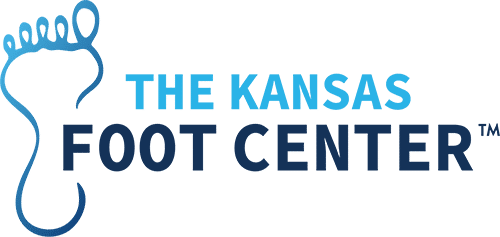Answers for Your Heel and Arch Pain
Heel and arch pain issues bring many patients in to see us here at Kansas Foot Center. The good news is that many of the conditions responsible for these symptoms are effectively treated with conservative care measures. Even better, most can be prevented with some easy measures. A little understanding goes a long way towards keeping you safe from these common problems!
Plantar Fasciitis
This is the most common cause of heel pain for adult patients. Whenever you wake in the morning and experience a sharp, stabbing pain under your heel with your first steps, plantar fasciitis is the most likely explanation. This overuse injury comes from inflammation in a band of fibrous tissue—your plantar fascia—running along the bottom of your foot. The pain is often worse after extended periods of rest, which is explained by the fact that the body has been repairing the damaged tissue, but tears are reopened when each step stresses the fascia again.
Achilles Tendinitis
Pain in the back of the heel that accompanies physical activity may very well be a condition known as Achilles tendinitis. As with plantar fasciitis, this is an overuse injury and is particularly prevalent when you start new activities or suddenly increased your running pattern. This injury is especially common for individuals who begin a new workout program or suddenly turn up the intensity of their training.
Sever’s Disease
Sever’s disease is a condition often experienced by growing boys and girls, particularly those who are active, between the ages of 8 and 13. The primary symptom is pain in the heel area that is caused by irritation in the growth plate of the bone. If your son or daughter doesn’t complain about pain, but starts to back away from favorite physical activities, this might very well be the explanation.
Pump Bump (Haglund’s Deformity)
Technically known as “Haglund’s deformity,” pump bump gets its apt nickname from the fact it is commonly experienced by women who wear high heels (pumps). This condition is marked by a bony protrusion on the back of the heel, which results in pain when it pressures soft tissues in the area.
Physical Trauma
Another possible reason you or a family member may be experiencing heel or arch pain is simply physical injury. When the heel is hit with substantial physical trauma, it could lead to bruising or even a fracture that causes sharp pain when you walk.
How Is Heel Pain Treated?
When you experience pain in your arch or heel, take comfort in the fact that conservative care is often quite effective in treating these conditions. Surgery may be required in some cases, but those are rather rare. The specific care we provide will naturally depend on the issue that is affecting you, but medication, physical therapy, orthotics, exercise, and changes in footwear may be enough to provide the relief you need.
Can Heel Pain Be Prevented?
Many heel and arch issues can be prevented by proper shoe choices and other techniques. We want you to avoid painful conditions in the first place, so be sure to:
- Choose shoes that fit you properly, provide adequate arch support, help absorb shock, and are comfortable. The right pair of shoes is essential for preventing a wide range of foot and ankle issues, so always be careful when buying new footwear.
- Avoid the problems and issues that come with overtraining by using cross-training. Swap some of the days of high-impact activities with ones that feature low-impact exercises. Swimming, bicycling, and yoga are great exercises to try.
- Always make sure you warm up and stretch properly prior to (and following) exercise or physical activity.
- Avoid the temptation to attempt “too much, too soon” when starting a new workout program. Instead, make a gradual progression in your levels of intensity and duration of your workouts.
Heel and Arch Pain Treatment in Wichita, KS
Our medical professionals at Kansas Foot Center are ready to assist you and provide care for any condition that might be affecting your heel or foot arches. Dr. Thomas D. Truong will provide the effective care you need, so reach out and contact us today. Schedule an appointment online or simply call our Wichita, KS office at (866) 222-5177.

